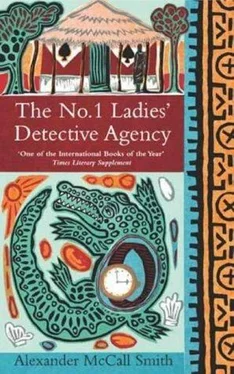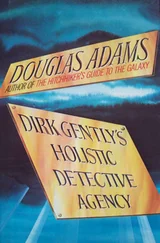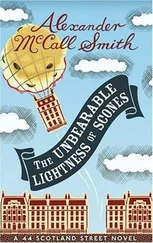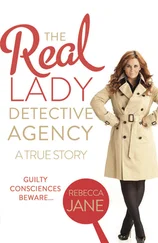I have never seen the sea, although a man I worked with in the mines once invited me to his place down in Zululand. He told me that it had green hills that reached down to the Indian Ocean and that he could look out of his doorway and see ships in the distance. He said that the women in his village brewed the best beer in the country and that a man could sit in the sun there for many years and never do anything except make children and drink maize beer. He said that if I went with him, he might be able to get me a wife and that they might overlook the fact that I was not a Zulu-if I was prepared to pay the father enough money for the girl.
But why should I want to go to Zululand? Why should I ever want anything but to live in Botswana, and to marry a Tswana girl? I said to him that Zululand sounded fine, but that every man has a map in his heart of his own country and that the heart will never allow you to forget this map. I told him that in Botswana we did not have the green hills that he had in his place, nor the sea, but we had the Kalahari and land that stretched farther than one could imagine. I told him that if a man is born in a dry place, then although he may dream of rain, he does not want too much, and that he will not mind the sun that beats down and down. So I never went with him to Zululand and I never saw the sea, ever. But that has not made me unhappy, not once.
So I sit here now, quite near the end, and think of everything that has happened to me. Not a day passes, though, that my mind does not go to God and to thoughts of what it will be like to die. I am not frightened of this, because I do not mind pain, and the pain that I feel is really quite bearable. They gave me pills-large white ones-and they told me to take these if the pain in my chest became too great. But these pills make me sleepy, and I prefer to be awake. So I think of God and wonder what he will say to me when I stand before him.
Some people think of God as a white man, which is an idea which the missionaries brought with them all those years ago and which seems to have stuck in people's mind. I do not think this is so, because there is no difference between white men and black men; we are all the same; we are just people. And God was here anyway, before the missionaries came. We called him by a different name, then, and he did not live over at the Jews' place; he lived here in Africa, in the rocks, in the sky, in places where we knew he liked to be. When you died, you went somewhere else, and God would have been there too, but you would not be able to get specially close to him. Why should he want that?
We have a story in Botswana about two children, a brother and sister, who are taken up to heaven by a whirlwind and find that heaven is full of beautiful white cattle. That is how I like to think of it, and I hope that it is true. I hope that when I die I find myself in a place where there are cattle like that, who have sweet breath, and who are all about me. If that is what awaits me, then I am happy to go tomorrow, or even now, right at this moment. I should like to say goodbye to Precious, though, and to hold my daughter's hand as I went. That would be a happy way to go.
* * *
I LOVE our country, and I am proud to be a Motswana. There's no other country in Africa that can hold its head up as we can. We have no political prisoners, and never have had any. We have democracy. We have been careful. The Bank of Botswana is full of money, from our diamonds. We owe nothing.
But things were bad in the past. Before we built our country we had to go off to South Africa to work. We went to the mines, just as people did from Lesotho and Mozambique and Malawi and all those countries. The mines sucked our men in and left the old men and the children at home. We dug for gold and diamonds and made those white men rich. They built their big houses, with their walls and their cars. And we dug down below them and brought out the rock on which they built it all.
I went to the mines when I was eighteen. We were the Bechuanaland Protectorate then, and the British ran our country, to protect us from the Boers (or that is what they said). There was a Commissioner down in Mafikeng, over the border into South Africa, and he would come up the road and speak to the chiefs. He would say: "You do this thing; you do that thing." And the chiefs all obeyed him because they knew that if they did not he would have them deposed. But some of them were clever, and while the British said "You do this," they would say "Yes, yes, sir, I will do that" and all the time, behind their backs, they did the other thing or they just pretended to do something. So for many years, nothing at all happened. It was a good system of government, because most people want nothing to happen. That is the problem with governments these days. They want to do things all the time; they are always very busy thinking of what things they can do next. That is not whatpeople want. People want to be left alone to look after their cattle.
We had left Mahalapye by then, and gone to live in Mochudi, where my mother's people lived. I liked Mochudi, and would have been happy to stay there, but my father said I should go to the mines, as his lands were not good enough to support me and a wife. We did not have many cattle, and we grew just enough crops to keep us through the year. So when the recruiting truck came from over the border I went to them and they put me on a scale and listened to my chest and made me run up and down a ladder for ten minutes. Then a man said that I would be a good miner and they made me write my name on a piece of paper. They asked me the name of my chief and asked me whether I had ever been in any trouble with the police. That was all.
I went off on the truck the next day. I had one trunk, which my father had bought for me at the Indian Store. I only had one pair of shoes, but I had a spare shirt and some spare trousers. These were all the things I had, apart from some biltong which my mother had made for me. I loaded my trunk on top of the truck and then all the families who had come to say goodbye started to sing. The women cried and we waved goodbye. Young men always try not to cry or look sad, but I knew that within us all our hearts were cold.
It took twelve hours to reach Johannesburg, as the roads were rough in those days and if the truck went too fast it could break an axle. We travelled through the Western Transvaal, through the heat, cooped up in the truck like cattle. Every hour, the driver would stop and come round to the back and pass out canteens of water which they filled at each town we went through. You were allowed the canteen for a few secondsonly, and in that time you had to take as much water as you could. Men who were on their second or third contract knew all about this, and they had bottles of water which they would share if you were desperate. We were all Batswana together, and a man would not see a fellow Motswana suffer.
The older men were about the younger ones. They told them that now that they had signed on for the mines, they were no longer boys. They told us that we would see things in Johannesburg which we could never have imagined existing, and that if we were weak, or stupid, or if we did not work hard enough, our life from now on would be nothing but suffering. They told us that we would see cruelty and wickedness, but that if we stuck with other Batswana and did what we were told by the older men, we would survive. I thought that perhaps they were exaggerating. I remembered the older boys telling us about the initiation school that we all had to go to and warning us of what lay ahead of us. They said all this to frighten us, and the reality was quite different. But these men spoke the absolute truth. What lay ahead of us was exactly what they had predicted, and even worse.
In Johannesburg they spent two weeks training us. We were all quite fit and strong, but nobody could be sent down the mines until he had been made even stronger. So they took us to a building which they had heated with steam and they made us jump up and down onto benches for four hours each day. This was too much for some men, who collapsed, and had to be hauled back to their feet, but somehow I survived it and passed on to the next part of our training. They told us how we would be taken down into the mines and about the work we would be expected to do. They talked to us about safety, and how the rock could fall and crush us if we were careless. Theycarried in a man with no legs and put him down on a table and made us listen to him as he told us what had happened to him.
Читать дальше












